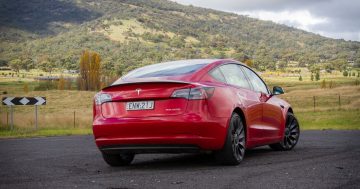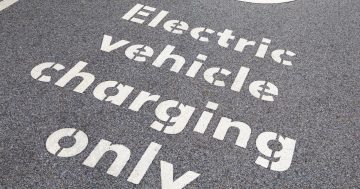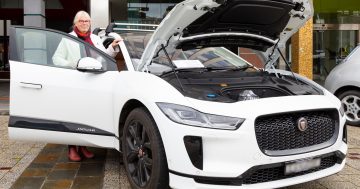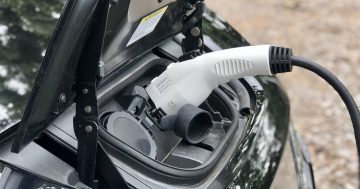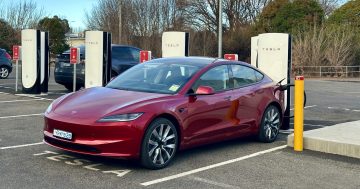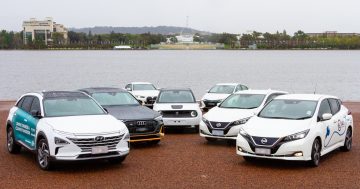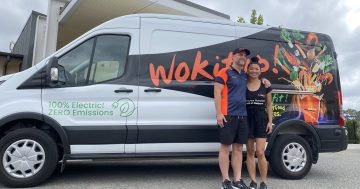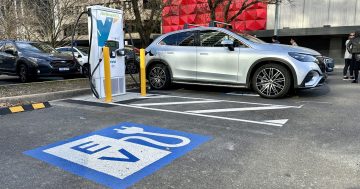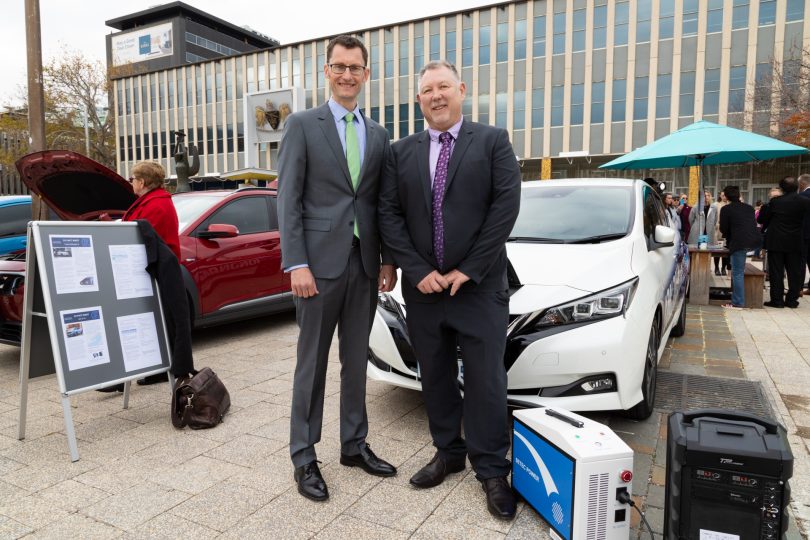
Australian Electric Vehicle Association (AEVA) president Chris Nash with the chair of the ACT Branch of AEVA Rob Ogilvie at the announcement of free registration for electric vehicles on Monday (24 May). Photo: Michelle Kroll.
The ACT Government has accelerated its incentives for owners of new and used zero-emission vehicles with two years’ free registration and the promise of at least 50 new charging stations in the Territory in the next 12 months.
Eligible ACT residents and businesses can apply for the free registration for vehicles in the ACT purchased or acquired from 24 May and before 30 June 2024.
Flanked by the latest EVs, including Jaguar’s first all-electric performance SUV and a Harley Davidson Livewire electric motorcycle, Minister for Energy and Emissions Reduction Shane Rattenbury took aim at the lack of EV incentives from the Federal Government and other state governments.
“Some state governments are bringing in this new road user charge, or EV tax, which I think is a disastrous policy at a time when Australia’s electric vehicle sales are less than one per cent of new vehicle sales,” Mr Rattenbury said.
“The ACT has been leading Australia in electric vehicle policy and incentives. For years we have had the most generous incentives for these vehicles, including stamp duty exemption for new vehicles, a 20 per cent registration discount and access to transit lanes.
“From today, we’re going further to offer two years of free registration for newly registered new and used zero-emissions vehicles.”
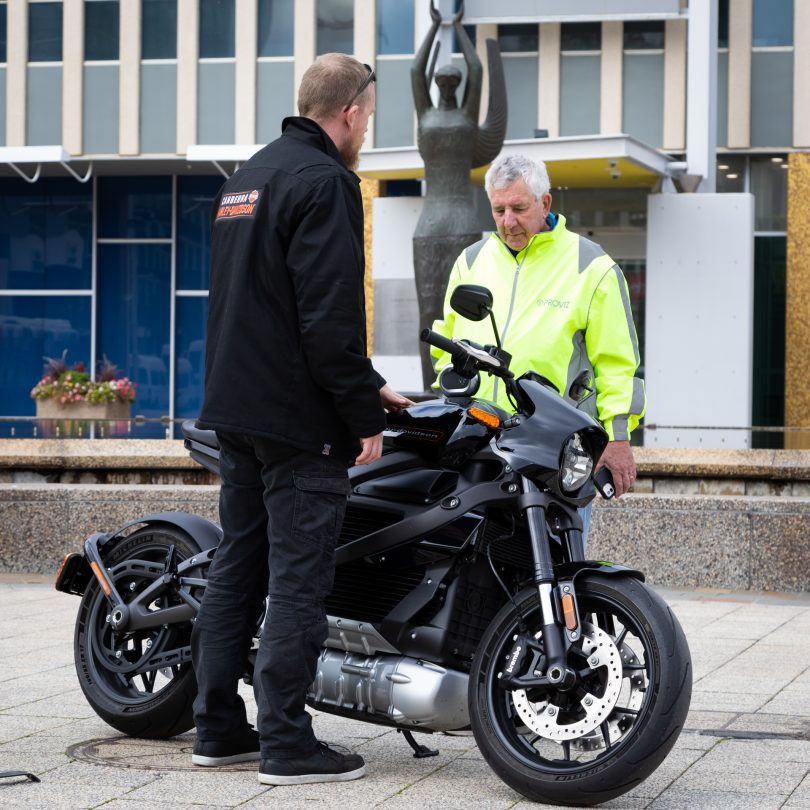
The Harley Davidson Livewire electric motorcycle. Photo: Michelle Kroll.
Chief Minister and Minister for Climate Action Andrew Barr said the ACT Government would continue to encourage people to purchase zero-emission vehicles.
The waiver of registration and stamp duty costs equated to about five per cent of the cost of a new EV, which is based on the weight of the vehicle. Mr Barr said he would like to see registration based on the emissions of the vehicle.
He also said the government had discussed having significantly more EV charging stations in the ACT, with the rollout of 50 new charging stations just the beginning.
ACT Auditor-General Michael Harris recently described the failure to include sufficient charging infrastructure in new ACT Government buildings in Dickson and Civic as “a missed opportunity”.
“In the next 12 to 18 months, we want to see that number grow significantly over the next five years, with hundreds and hundreds and hundreds of recharge sites,” Mr Barr said.
He also encouraged Canberrans to look at what’s on offer when they next purchase a vehicle.
“Transport emissions accounted for about 60 per cent of the ACT’s greenhouse gas emissions, and of these emissions, an estimated 70 per cent are from private vehicles.
“Reducing the number of high-emitting vehicles on our roads is significant to achieving our targets, along with encouraging active travel and public transport use.
“The ACT is fast approaching 1000 registered electric vehicles and further incentives, such as the two-year registration waiver and no-interest loans through the Sustainable Household Scheme, will make purchasing zero-emission vehicles a viable option for Canberrans.”
Mr Rattenbury said he expected the cost of EVs to reach parity with petroleum-based vehicles in the next three years.
“The automobile makers are going to stop making petrol vehicles, so Australia needs to gear up and get ready to make sure we’re ready for the future,” he said.
“We will establish a new goal in the next Parliamentary Agreement for 2030 of electric vehicle sales, and the research is now underway to put that goal in place.
“The Greens think it should be 90 per cent of new car sales by 2030 as I think that’s where the market is going.
“We do expect to see price parity by most predictions for new vehicles in the next three years, or by the middle of this decade is what I would anticipate. Frankly, by 2030, why you would not be buying an electric vehicle?”
Access Canberra said there were 952 registered EVs in the ACT as of 16 April, most of which are Teslas (422).
The ACT Government now has more than 140 zero-emissions vehicles in its fleet, including 52 electric vehicles, 70 plug-in hybrid electric vehicles and 20 hydrogen fuel cell vehicles.
The procurement process has also begun for 90 electric buses, the first of which is expected to commence operation in the next financial year.
The free registration eligibility requirements are available on the Access Canberra website.












